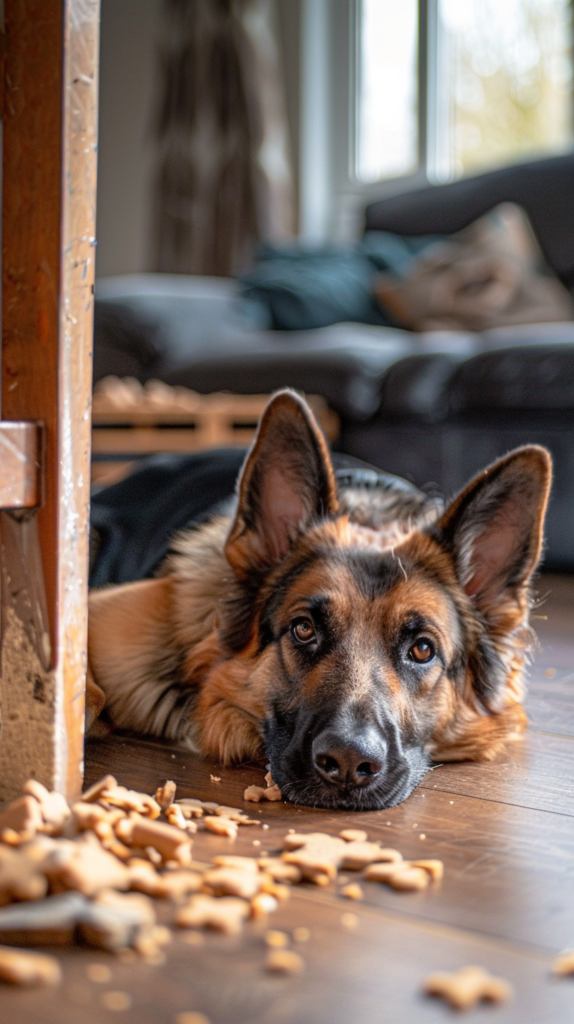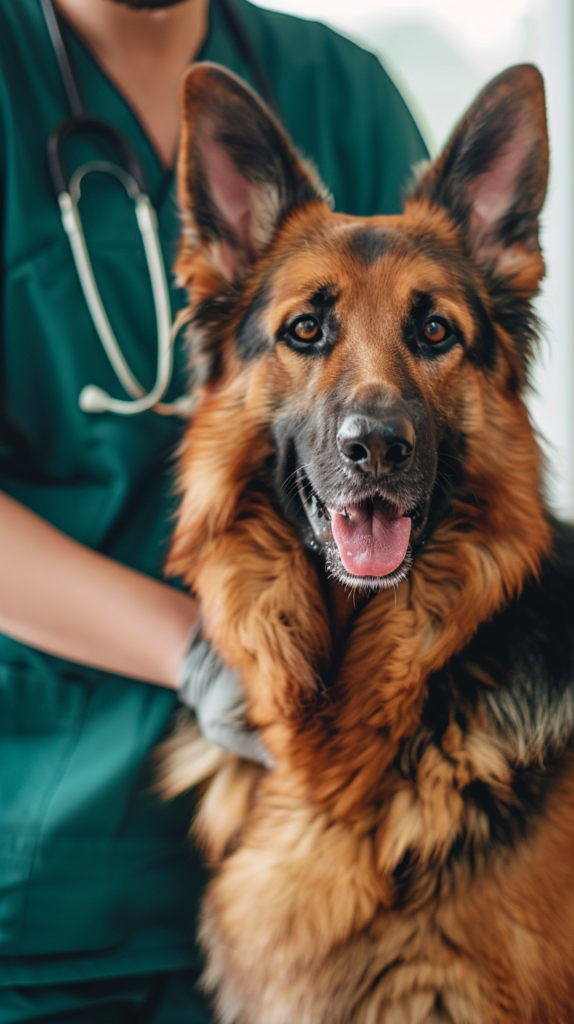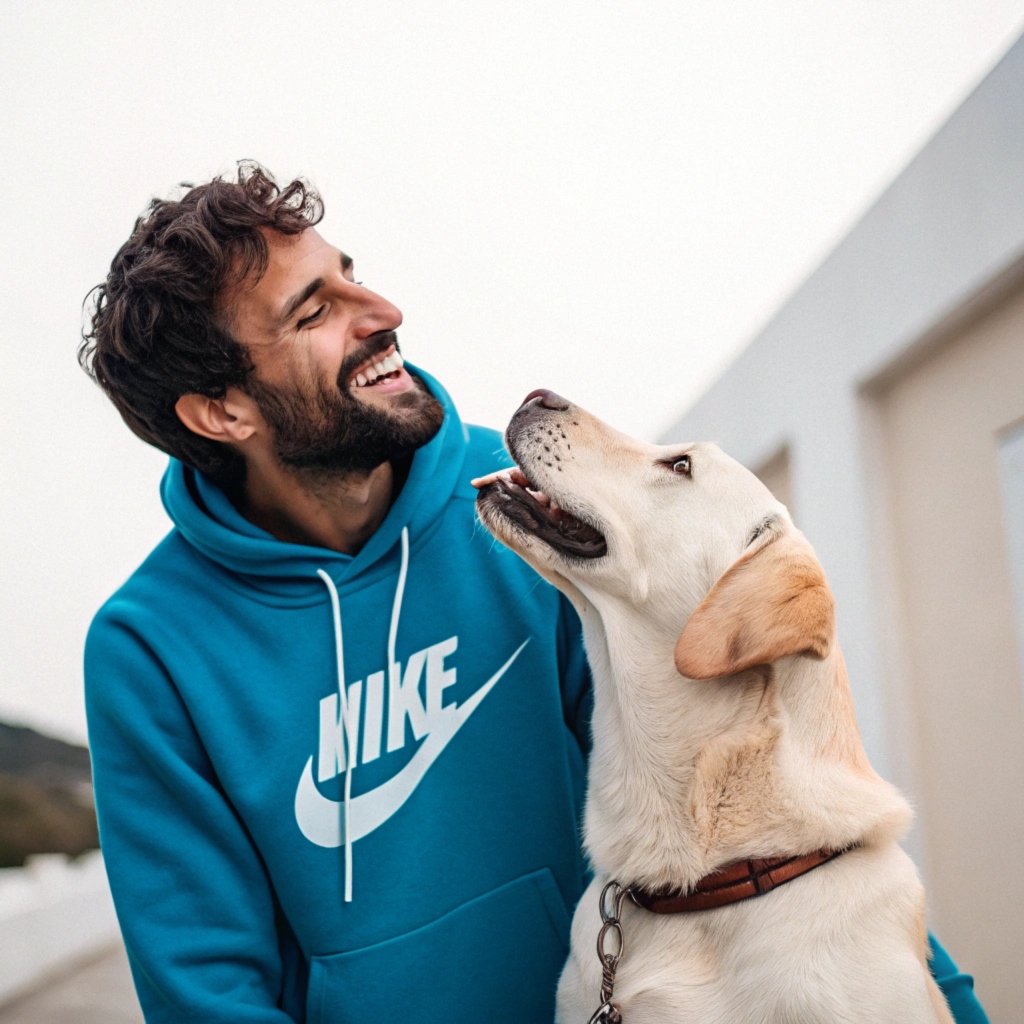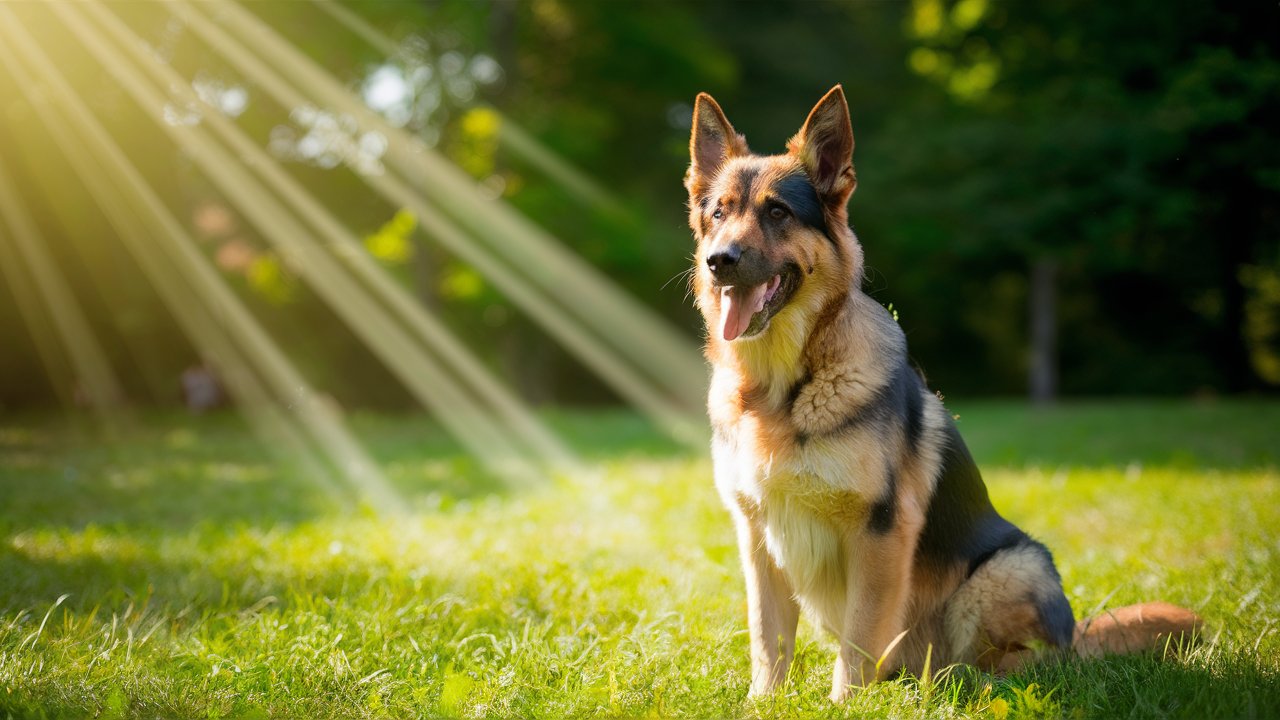8 Mistakes German Shepherd Owners Make
Ever wondered if you’re making common mistakes with your German Shepherd? These intelligent, loyal dogs are amazing companions, but they do require proper care and training.
Let’s dive into eight mistakes that German Shepherd owners often make and learn how to avoid them.
1. Neglecting Early Socialization
German Shepherds are naturally protective, which is great, but it can lead to problems if they aren’t socialized early. Without exposure to different people, animals, and environments, they might become overly wary or aggressive.

Take your puppy to parks, introduce them to your friends, and let them play with other dogs. The more they experience early on, the better they’ll handle new situations later. Think of it as giving them a “social butterfly” starter kit.
2. Inconsistent Training
Inconsistent training is a big no-no for German Shepherds. These dogs are smart and pick up on habits quickly, both good and bad. If you’re not consistent with commands and rules, your Shepherd might become confused and disobedient.
🍲 50 Printable Dog Food Recipes Your Pup Will Love
Skip the fillers and preservatives. Make healthy, homemade meals your dog will actually eat — using everyday ingredients you already trust. Vet-friendly, budget-friendly, and super easy to follow. 🐾
Perfect for picky eaters, senior dogs, and pups with sensitive stomachs. Make mealtime simple and nutritious again.
Get the Recipes Now 🐶
Make sure everyone in the household is on the same page with training. Use the same commands and reinforce the same behaviors. It’s like teaching a kid – consistency is key, or they might end up thinking that “sit” means “run around like crazy.”
3. Insufficient Exercise
German Shepherds are high-energy dogs that need plenty of exercise. Without enough physical activity, they can become bored and destructive.

Daily walks, runs, and playtime are essential. These dogs excel in activities like agility training and fetch, so keep them busy. Imagine having a super-athlete sitting at home all day with nothing to do – not a pretty picture, right?
4. Ignoring Mental Stimulation
Physical exercise alone isn’t enough for these intelligent dogs. German Shepherds need mental stimulation to stay happy and well-behaved.
Puzzle toys, training games, and teaching new tricks can keep their minds sharp. Think of it as giving them a Sudoku puzzle instead of letting them watch TV all day.

A bored Shepherd might find their own fun, which usually involves chewing up your favorite shoes.
5. Poor Diet and Nutrition
A healthy diet is crucial for a German Shepherd’s overall well-being. Feeding them low-quality food can lead to health issues and a lack of energy.

Ensure their diet includes high-quality proteins, fats, and essential nutrients. Consult your vet to create a balanced diet plan. Remember, you wouldn’t fuel a Ferrari with cheap gas, so why treat your Shepherd any differently?
6. Lack of Leadership
German Shepherds are natural leaders, but they also need to see you as the leader. Failing to establish yourself as the pack leader can lead to behavioral problems.
Be firm, consistent, and confident in your training. They need to know who’s in charge – otherwise, they’ll happily take the lead, and you might find yourself being herded around the house.

7. Not Providing a Job
These dogs love having a job to do. Without a purpose, German Shepherds can become restless and anxious. Whether it’s participating in dog sports, helping with household tasks, or learning new commands, keep them engaged.
It’s like giving them a career – they thrive when they have responsibilities. Plus, it’s fun to watch them “help” with chores. Need a sock picked up? Your Shepherd’s got it covered.
8. Overlooking Health Checkups
Regular vet visits are crucial to catch any health issues early. German Shepherds are prone to certain conditions like hip dysplasia and bloat.

Regular checkups, vaccinations, and preventive care can help keep them healthy. Think of it as their annual performance review – it ensures everything is running smoothly and they’re in top shape.
How to Train a German Shepherd
Training a German Shepherd involves understanding their intelligence, energy, and natural instincts. Here’s a step-by-step guide to help you train your German Shepherd effectively:
- Start Early: Begin training your German Shepherd puppy as soon as you bring them home. Puppies are more adaptable and can learn new behaviors quickly. Use positive reinforcement methods, such as treats and praise, to encourage good behavior.
- Basic Commands: Teach basic commands like sit, stay, come, and down. These commands are the foundation of all future training. Keep training sessions short and fun to maintain your dog’s interest and attention.
- Socialization: Expose your German Shepherd to different environments, people, and other animals early on. Socialization helps prevent fear and aggression. Take them to dog parks, pet-friendly stores, and around the neighborhood.
- Crate Training: Crate training provides a safe and secure space for your German Shepherd. It helps with house training and prevents destructive behavior when you’re not around. Make the crate a positive place with treats and toys.
- Leash Training: Teach your German Shepherd to walk on a leash without pulling. Start with short walks and gradually increase the distance. Use treats and praise to reward good leash behavior.
- Mental Stimulation: Keep your German Shepherd’s mind engaged with puzzle toys, obedience training, and interactive games. Mental stimulation is just as important as physical exercise for this intelligent breed.
- Advanced Training: Once your dog has mastered the basics, move on to more advanced training. German Shepherds excel in agility, obedience competitions, and service roles. Continue to challenge their minds and bodies with new tasks.
- Consistency and Patience: Be consistent with your training methods and patient with your dog. German Shepherds are quick learners but can be stubborn at times. Consistency helps reinforce good behavior.

Frequently Asked Questions (FAQ)
Q: How often should I train my German Shepherd?
A: Daily training sessions are ideal. Keep sessions short, around 10-15 minutes each, to maintain your dog’s interest. Multiple short sessions throughout the day can be more effective than one long session.
Q: What are the best treats for training a German Shepherd?
A: Use high-value treats like small pieces of chicken, cheese, or commercial dog treats designed for training. The key is to use something your dog loves and will work hard to earn.
Q: How do I stop my German Shepherd from pulling on the leash?
A: Teach leash manners by stopping immediately when your dog starts to pull. Wait until they return to your side before continuing. Reward them for walking calmly by your side. Consistency is crucial for this training.
Q: How can I socialize my German Shepherd puppy?
A: Start socialization early by exposing your puppy to different environments, people, and animals. Puppy classes, dog parks, and playdates with other dogs are excellent ways to socialize your German Shepherd.
Q: My German Shepherd barks a lot. How can I manage this?
A: Identify the cause of the barking and address it. If it’s due to boredom, provide more mental and physical stimulation. Teach the “quiet” command and reward your dog for stopping barking on cue. Avoid yelling, as it can make the barking worse.
Q: What are the common health issues in German Shepherds?
A: German Shepherds are prone to hip dysplasia, elbow dysplasia, and bloat. Regular vet checkups, a healthy diet, and appropriate exercise can help manage and prevent these issues. Be aware of any signs of discomfort or illness and consult your vet promptly.
Q: How do I make my German Shepherd smarter?
A: Engage their mind with puzzle toys, training games, and new challenges. Regular training, socialization, and mental stimulation will keep your German Shepherd sharp and intelligent. Consistency and patience in training are key to developing their full potential.

Conclusion
Owning a German Shepherd is incredibly rewarding, but avoiding these common mistakes is key to ensuring they remain healthy, happy, and well-behaved.
Early socialization, consistent training, and providing both physical and mental stimulation are essential. Remember to feed them well, establish yourself as the leader, and give them a purpose. Regular health checkups will keep them in prime condition.
By following these tips, you’ll have a loyal and smart companion by your side, ready for any adventure.

I’ve spent 10+ years in dog training, digging into what makes dogs (and their humans) tick. At Smart Dog Learning, I share my no-nonsense, fun approach to training so you can enjoy life with a well-behaved, happy pup—no boring lectures, just practical results 😉





